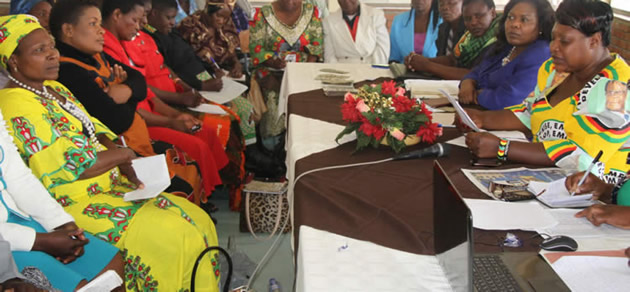Rape, sexual exploitation of adolescents rampant during the dating period

- On average girls tend to date much earlier and more often than boys. The desire to date an individual comes from physical attractiveness, personality characteristics, family background, level of education and so on. High school pupils with high academic potential and achievement tend to date less often than their counterparts of low academic achievement
DATING is one of the most thrilling periods during adolescence both during the time of dating as well as later as it provides outstanding memories to couples or partners. Dating provides adolescents with the opportunities to improve their interpersonal and social skills and in the process they also try roles that characterise marital relations.
Apart from that, dating provides love, affection and friendship. Dating also provides an opportunity for adolescents to finally make their mate selection in preparation for marriage. However, with the advent of the print media and pornography, there are some adolescents who nowadays use dating as a means for sexual experimentation.
Most young women fall trap to such an arrangement as they are mostly used and dumped and this is described as dating rape where the young women are forced into sexual intercourse without their consent. As a result most adolescents have been hurt and robbed of their virginity. Some dates are therefore superficial as some of these young men are there to exploit the young women. Young women should therefore learn to say no to premarital sex.
As a result, the consequence of such unions is teenage pregnancy and early marriages. In one study conducted by Burchinal (1959), 40 percent of girls who married early had fallen pregnant prior to marriage. It must be noted that there are also some girls and young women who do not necessarily fall pregnant but engage in sexual activities well before marriage due to use of family planning methods such as the condom and the pill.
Those adolescents who date at an early age usually end up in early marriages. A follow up of 32,000 individuals indicated that adolescents of lower socio-economic groups tend to marry at an early age than those of a higher socio-economic status. Apart from that, those who pursue their educational careers postpone marriage until they have completed their education.
In the book, The Psychology of Adolescence, it is stated that the age at first marriage has greatly declined. For women the median age for first marriage was 21.6 years in 1940 and 20.8 years in 1970. Since 1970, there has been a further decrease in the age at first marriage.
Most wedded and married couples have given testimony on how they met and dated. Some adolescents meet in halls, park, church, school, street and so on. Some youngsters date by means of telephone conversations before they go together in public. According to several studies, nearly all adolescents start dating by the age of 17 years but the median age of starting dating is 14 years.
On average girls tend to date much earlier and more often than boys. The desire to date an individual comes from physical attractiveness, personality characteristics, family background, level of education and so on. High school pupils with high academic potential and achievement tend to date less often than their counterparts of low academic achievement.
Most dates involve physical contact ranging from holding hands, kissing, hugging to sexual engagement. However this has demonstrated a paradigm shift in terms of dating as a long time ago it was taboo to engage in sexual intercourse with a dating partner before marriage.
A study conducted by Miller and Simon (1974) of adolescents aged between 13-19 years revealed that half of them had sexual intercourse with their dating partners. The case of Sobukazi High School in Bulawayo where two Form Four students were caught having sexual intercourse during the day at the school is a clear testimony of how adolescents have failed society. Adolescents are doing much more behind the backs of their parents. Even those who do not engage in sexual activity engage in necking and petting. At times dating ends up in infatuation.
It is unfortunate that it is likely that the first love does not last forever. Most adolescents fall in love more than once during early and late adolescent years. With the advent of HIV/AIDS it is unfortunate that some of them might fall victims to the pandemic at a tender age. It must be emphasised that dating is not about engaging in sexual intercourse but a build-up to courtship and marriage.
Due to their popularity and physical attractiveness, most girls become the centre of attraction at school, community, or college not knowing that some men are there to sexually exploit them and later dump them. Some men go from one love affair to the other just to test their prowess.
As adolescents grow, they may then come to a stage of engagement because of the intensity of love and understanding between the partners. At times people wonder where the issues of divorce come from later on in life. The facts are that the person in love may overlook bad habits, weaknesses and symptoms of emotional immaturity, differences in age, ideals, religious affiliation and other social and cultural conditions that may require very difficult practical and psychological adjustments. This also applies to most marriages today. A person can later display a totally different character sooner or later after marriage.
Some adolescents marry soon after high school and some marry while they are still at college or university. At colleges the marriage of girls far outnumber that of boys and the divorce rate is higher when both parties are under the age of twenty, 40 percent of such marriages end up in divorce. Generally most couples are not happy as their marriages are bound with stresses and strain.
Some adolescents at colleges and universities at times choose to cohabit and live together as mates without the formality of marriage. While this might be satisfying to them but most parents are hurt as they always expect better out of their children and they expect to have a hand in the approval of a mate for their daughters or sons.
Vaidah Mashangwa is the Provincial Development Officer Ministry of Women Affairs, Gender and Community Development for Bulawayo. She can be contacted on 0772 111 592 e-mail [email protected].











Comments